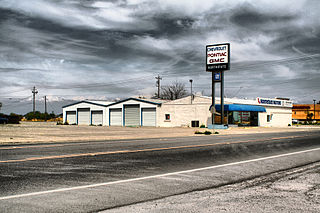 W
WThe U.S. state of California had a budget crisis in which it faced a shortfall of at least $11.2 billion, projected to top $40 billion over the 2009–2010 fiscal years.
 W
WThe May 6, 2010, flash crash, also known as the crash of 2:45 or simply the flash crash, was a United States trillion-dollar stock market crash, which started at 2:32 p.m. EDT and lasted for approximately 36 minutes.
 W
WThe AIG bonus payments controversy began in March 2009, when it was publicly disclosed that the American International Group (AIG) insurance corporation was going to pay approximately $218 million in bonus payments to employees of its financial services division.
 W
WThe American Recovery and Reinvestment Act of 2009 (ARRA), nicknamed the Recovery Act, was a stimulus package enacted by the 111th U.S. Congress and signed into law by President Barack Obama in February 2009. Developed in response to the Great Recession, the primary objective of this federal statute was to save existing jobs and create new ones as soon as possible. Other objectives were to provide temporary relief programs for those most affected by the recession and invest in infrastructure, education, health, and renewable energy.
 W
WPhillip Nicholas Angelides is an American politician who was California State Treasurer and the unsuccessful Democratic nominee for Governor of California in the 2006 elections. Angelides served as the Chair of the Apollo Alliance and of the Financial Crisis Inquiry Commission.
 W
WThe Dodd–Frank Wall Street Reform and Consumer Protection Act is a United States federal law that was enacted on July 21, 2010. The law overhauled financial regulation in the aftermath of the Great Recession, and it made changes affecting all federal financial regulatory agencies and almost every part of the nation's financial services industry.
 W
WBeginning in the later half of 2008, a global-scale recession adversely affected the economy of the United States. A combination of several years of declining automobile sales and scarce availability of credit led to a more widespread crisis in the United States auto industry in the years of 2008 and 2009.
 W
WThe financial crisis of 2007–2008, also known as the global financial crisis (GFC), was a severe worldwide financial crisis. Excessive risk-taking by banks combined with the bursting of the United States housing bubble caused the values of securities tied to U.S. real estate to plummet, damaging financial institutions globally, culminating with the bankruptcy of Lehman Brothers on September 15, 2008, and an international banking crisis. The crisis sparked the Great Recession, which, at the time, was the most severe global recession since the Great Depression. It was also followed by the European debt crisis, which began with a deficit in Greece in late 2009, and the 2008–2011 Icelandic financial crisis, which involved the bank failure of all three of the major banks in Iceland and, relative to the size of its economy, was the largest economic collapse suffered by any country in economic history.
 W
WThe Financial Stability Oversight Council (FSOC) is a United States federal government organization, established by Title I of the Dodd–Frank Wall Street Reform and Consumer Protection Act, which was signed into law by President Barack Obama on July 21, 2010. The Office of Financial Research is intended to provide support to the council.
 W
WChristy Goldsmith Romero is an American lawyer and federal government official. She serves as the Special Inspector General of the Troubled Asset Relief Program, a federal law enforcement agency and an independent audit watchdog that targets financial institution crime and other fraud, waste, and abuse related to the TARP bailout. In this capacity, she investigates financial institution crime related to the TARP bailout. Notable investigations by SIGTARP include Wilmington Trust, Sonoma Valley Bank, General Motors, United Commercial Bank, Morgan Stanley, Ally Financial, Bank of the Commonwealth, Jefferies, RBS, and SunTrust.
 W
WMotors Liquidation Company (MLC), formerly General Motors Corporation, was the company left to settle past liability claims from Chapter 11 reorganization of American car manufacturer General Motors. It exited bankruptcy on March 31, 2011, only to be carved into four trusts; the first to settle the claims of unsecured creditors, the second to handle environmental response for MLC's remaining assets, a third to handle present and future asbestos-related claims, and a fourth for litigation claims.
 W
WThe US bear market of 2007–2009 was a 17-month bear market that lasted from October 9, 2007 to March 9, 2009, during the financial crisis of 2007-2009. The S&P 500 lost approximately 50% of its value, but the duration of this bear market was just below average due to extraordinary interventions by governments and central banks to prop up the stock market.